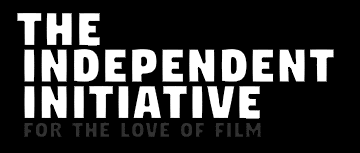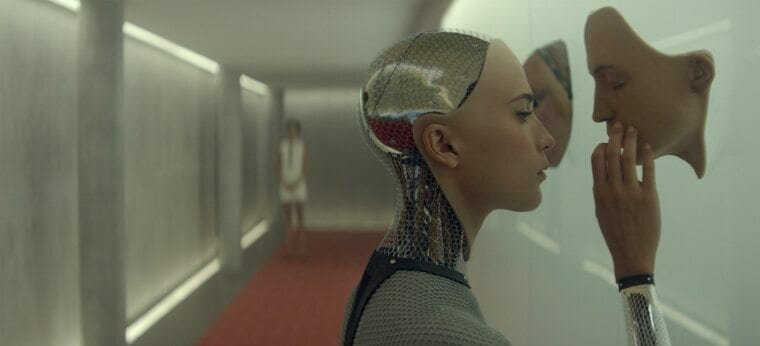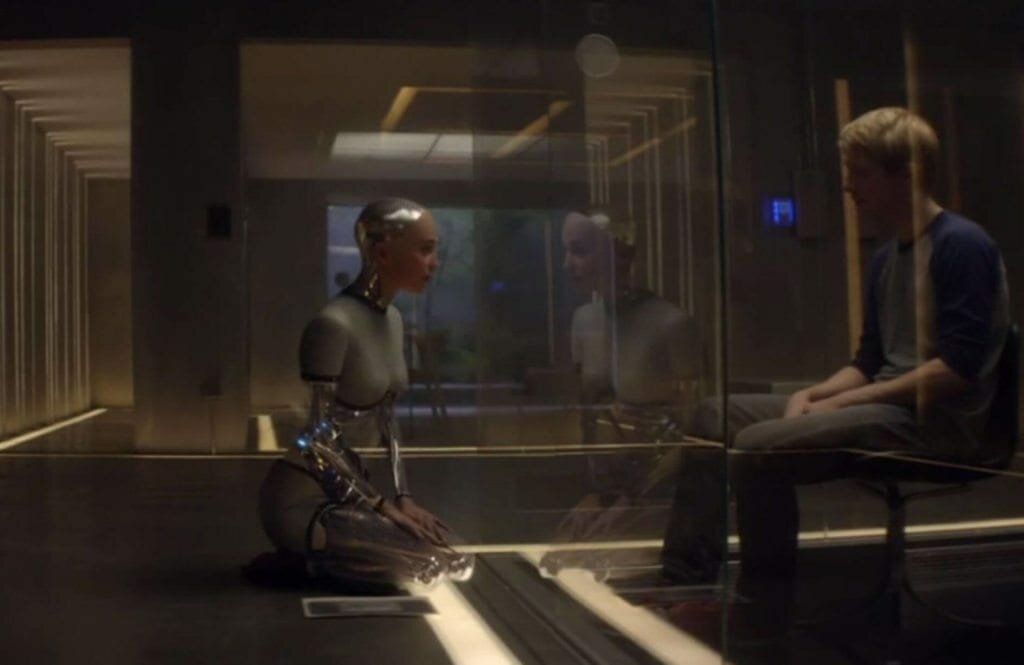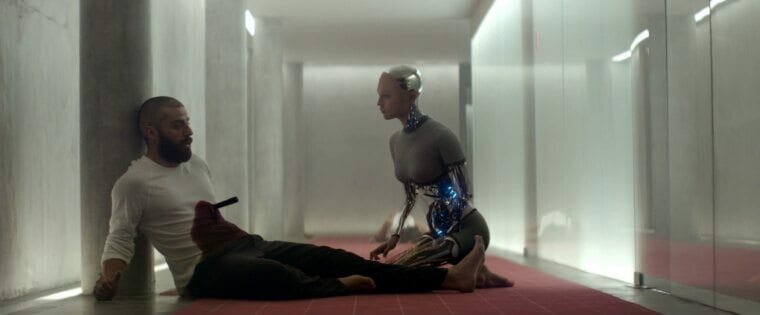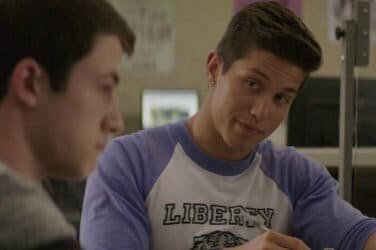*****WARNING CONTAINS SPOILERS FOR EX MACHINA*******
In its journey from “B Movies” to popular movies, science fiction has always been about the anxiety of the future. What will technology do to us? What will we become? How will it change our lives? How will it amplify the dysfunction already prevalent in society?
Good science fiction touches on these questions, great science fiction swims in them. One of the most recent films to accomplish this was Alex Garland’s Ex Machina. This film delivers on every level, but what I like most about it is it’s simplicity and clear focus.
Here are a few tips to help keep your own science fiction film simple from this award-winning film.
- Explores a “What if…”
Some would argue EVERY great film tackles a “what if” question… what if a young street urchin found a Genie in a lamp? (Aladdin), what if your estranged wife’s building was attacked by terrorists? (Die Hard), etc.
A great science fiction NEEDS to have a “what if…” concept behind it. It’s the very thing which makes it a part of the science fiction genre.
For Ex Machina, the big “what if” concept is, “what if artificial intelligence wasn’t a thing of the future, but right here and now?” Perhaps even more specifically, “what if you couldn’t tell the difference between humans and machines?”
If you’re going to write a great science fiction script, you’re going to need a great “what if?” question to wrestle with yourself.
- Include Memorable Visuals
Every great science fiction film is visually striking, or at the very least, has a strong visual element. While this is obviously the job of DP and the director to create memorable visuals, if you don’t write in opportunity for visual splendor, then your science fiction film will be quickly forgotten.
Many are set in the future or alternate worlds or realities, relying on these factors to create something visually memorable. Think Star Trek or Blade Runner.
However, it doesn’t have to be grand or all-inclusive.
It can be simple.
In Ex Machina, writer Alex Garland included the enigmatic A.I., Ava; a robot with a human face, but body that highlighted her robotic nature visually. Her inclusion was the only element which felt out of place in a mostly grounded reality.
- Theme Centering Around Technology and Humanity
Since the time of Jules Verne, science fiction has always been about man’s relationship with technology and corporate social anxiety centering on the future, as well as potential salvation (or ultimate destruction) for mankind through technology.
Needless to say, if your science fiction story isn’t dealing with mankind’s relationship to technology in some way, then I would struggle to classify it as science fiction.
Dune and Star Wars both take place in space, but follow the rules of fantasy films more than science fiction. The Alien films also take place in space, and while an argument could be made for science fiction, they would more safely fit in the action or horror genre.
Ex Machina is all about mankind’s relationship with technology. Literally, the protagonist, Caleb (Domhnall Gleeson) is unable to differentiate between human love and relationship from the relationship he has developed with robot Ava (Alicia Vikander).
The story is a parable of how our love for technology could ultimately destroy us.
Science fiction has not always been considered a genre of note, but it’s becoming more and more so with films like Ex Machina giving apt and powerful commentary on our relationship with technology.
Hopefully with these tips, you can help create films to push the genre of science fiction in bold and innovative directions.

